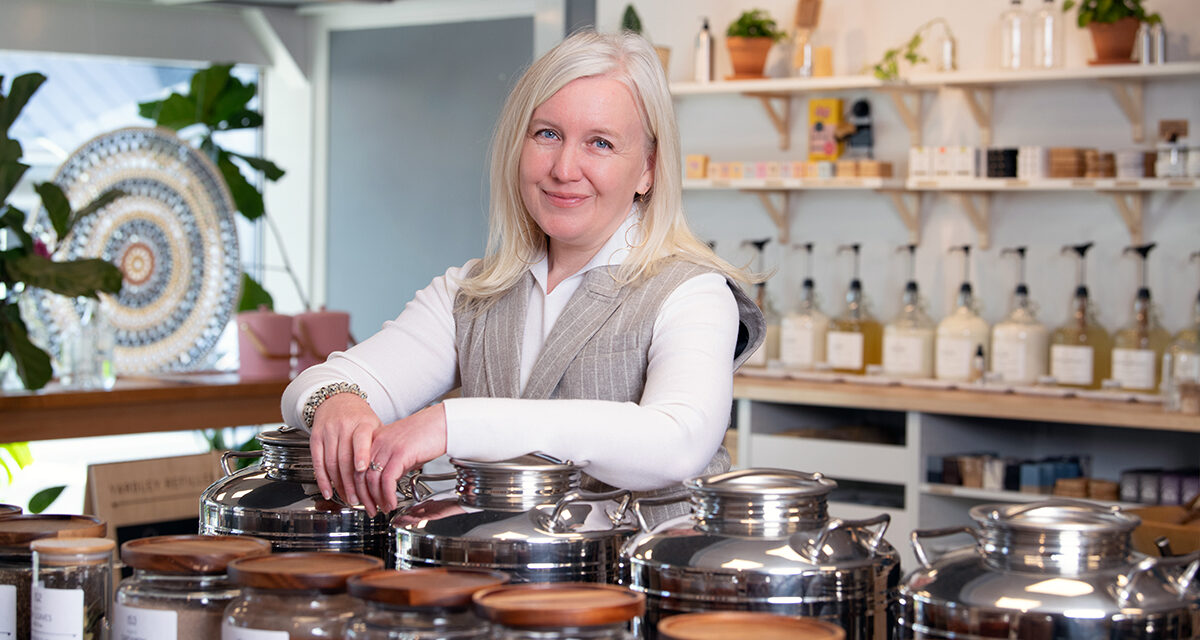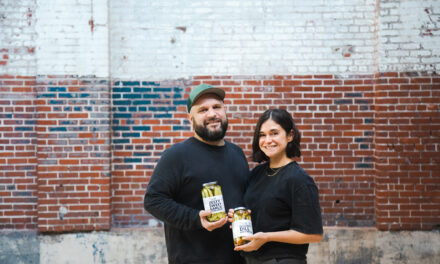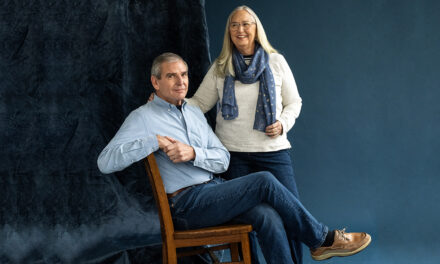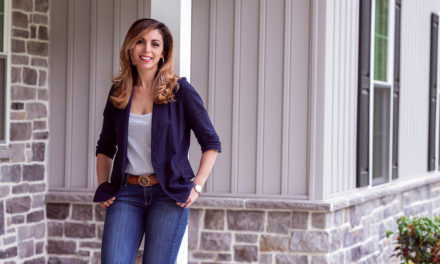Jaime Alford, a co-owner of the Yardley Refillery, is helping customers consume less (and better) for the environment and their health.
It matters what you ingest, what you put on your body, and what you have around your home. Health is holistic.
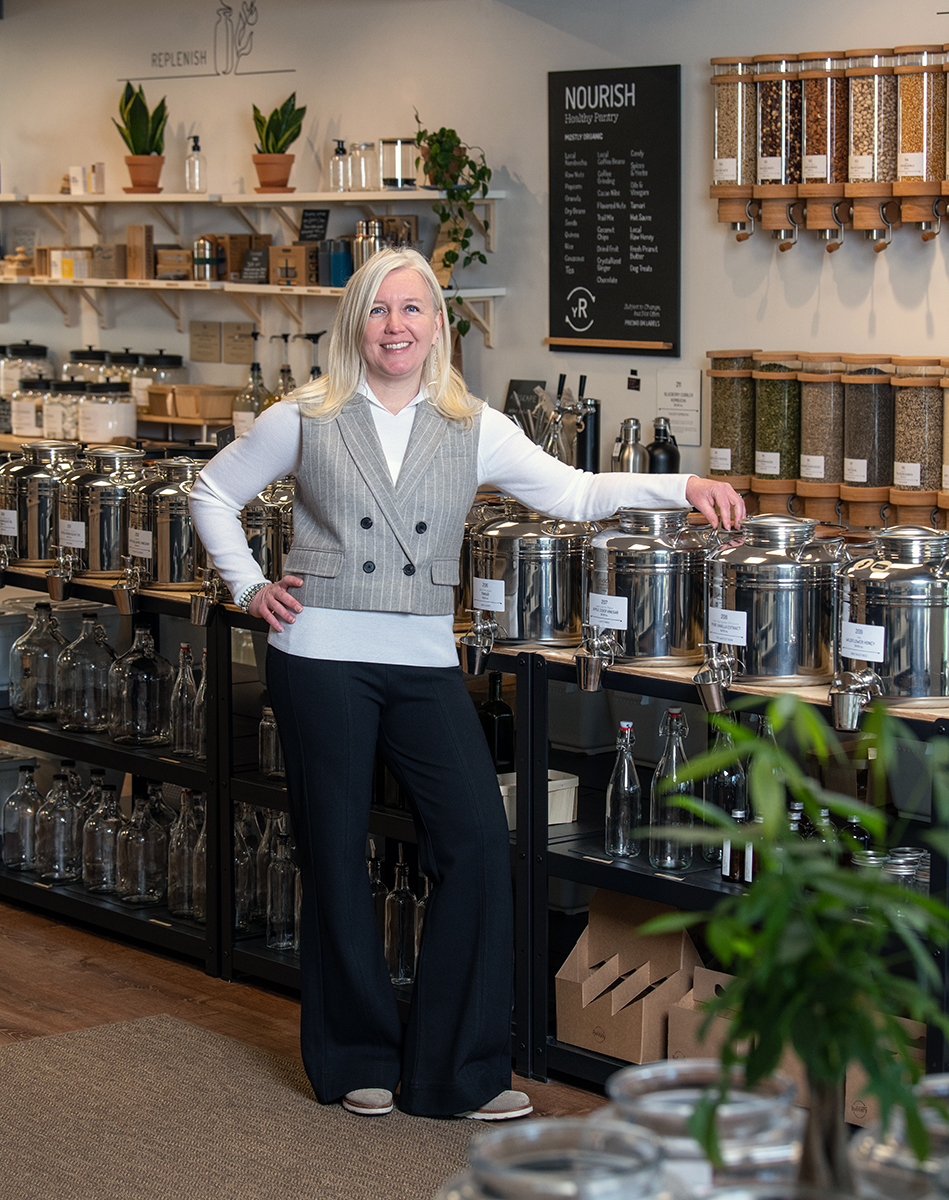
Periodically throughout the day, 46-year-old Jaime Alford wanders through the store she and her partners opened last September, carefully straightening shampoo bars, refilling the best-selling everything bagel cashews and coffee beans, and adding more laundry detergent to jugs. She combs through the store with her eyes and hands, ensuring it has the warm, clean, inviting environment she worked so hard to create. After all, the Yardley Refillery isn’t just a job or even a moneymaking venture to Alford—it’s a way of life.
The concept invites customers to bring containers from home or purchase glass, aluminum, or paper containers from the Refillery, and fill them with household items from body lotion to grass seed and everything in between.
While the Refillery, which is sandwiched between two Yardley, PA. coffee shops, came to fruition relatively quickly, it’s the zenith of the two-decade journey to living an intentionally health-conscious life, one that began with tragedy. “When I was 20, my mom was diagnosed with breast cancer at age 45. This was in 1997, before a lot of the more modern treatments were widely available, and it just ravaged her body. It spread to her bones and her liver and everywhere,” Alford recalls. “She passed away at 50, and this event just propelled me on a road to well-being for the rest of my life.”
Alford, who was a graphic designer at the time, began asking questions. Although she understood the strong genetic component of her mom’s cancer and the role her lineage played, she began to question which components of their environment and the foods and products her family consumed were factors in her mom’s cancer. “My mother’s passing made me hyperaware of the things we put in our bodies. What are we putting in our homes, and what are they off-gassing? And that curiosity led me to live very intentionally.”
Through her research and general curiosity, she discovered a lesson that would inform her work and her life. “It matters what you ingest, what you put on your body, and what you have around your home,” Alford says. “Health is holistic.”
A Case for Sustainable Shopping
Not long after losing her mother, Alford pivoted in her career, moving into the fragrance industry for a company called Firmenich, which was founded in Geneva, Switzerland, in 1895. “My job was to observe what was going on in the corners of society and forecast buying trends among consumers,” she explains. “I would go to different cities and take pictures of street art or niche shops, or sidewalk art because there are messages in these places. Then we’d gather all these pictures and messages and look at them and say, ‘Okay, here’s something that’s happening.’”
Throughout her 22 years at Firmenich, Alford not only gained extensive knowledge and experience about a variety of household products and buying trends, but she also saw the sustainability movement in its infancy. “Since the company is global, I was seeing greener and healthier cultural norms in places like Europe or Brazil and realizing the things we’re consuming here in the U.S. are not the best for the planet, and by extension for us and our bodies,” Alford says. “It was in the midst of this research when I first saw the plastic crisis, refill, and zero waste movements start to emerge.”
While it still lived on the fringe, package-free and product refill options were available out there, and she kept wondering what it would take to make it a mainstream idea that could eventually become a way of life. From Alford’s point of view, Covid was that earth-shattering event that not only changed consumers’ shopping habits but also caused people to look for ways to be healthier and minimize their carbon footprint. “I was still at Firmenich at the time, and we did these large-scale consumer studies to take a pulse of how habits were changing. So many people working from home meant that consumers could shop local,” Alford explains. “I also think the pandemic caused many people to start connecting the dots. You were at home with your family, looking more closely at things you buy every day. Maybe you had time to read labels on household products and food and began to gain a greater awareness of what we bring into our lives.”
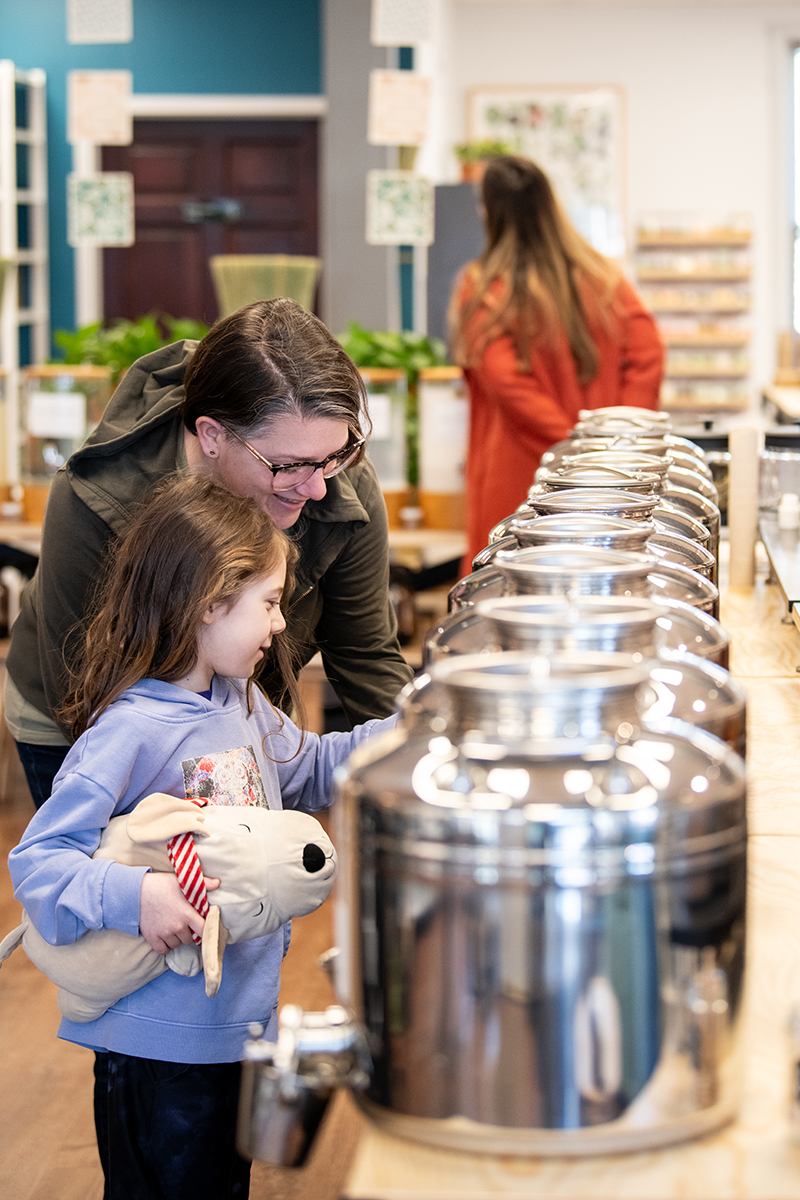

Everyday Changes
Last May, her friend Dan McLaughlin reached out. He had owned and sold three hardware stores in the area and was looking to try something new. So Alford pitched the idea of a low-waste shopping experience, and when the perfect location opened in Yardley (on a corner at a key intersection), the pieces started falling into place. So Dan McLaughlin and his wife Karin and Alford and her partner Rob Knab became official owners of the Yardley Refillery, and Alford got to work, putting on her researcher hat to learn everything she could about best practices and cultivate ideas that would work best in the area.
Alford visited as many local refill stores as she could. She discovered that creating a clean, bright, and airy aesthetic and organizing the store by areas of the home, including laundry, bathroom, kitchen, and garden, made for an inviting shopping experience that has resulted in more than half the people through the door coming back as repeat customers. Alford and her partners are also pleasantly surprised by how broad their customer base is compared to their expectations. “I had assumed younger generations would be our core customer base, but it’s not been the case. People of all ages are really into it,” Alford explains. “So many people come in and tell me how tired they are of plastic and seeing it pile up in their recycle bins. I think we know in the back of our heads that a lot of it is not actually being recycled.”
While the whole team behind the Yardley Refillery is hoping to create a successful business and one that brings the community together, Alford sees her goal of converting people to a low-waste lifestyle as one that is resonating with the community. “I feel like we’ve already achieved so much success. But I think we can do a lot more,” Alford says. “I’m watching customers swap one routine at a time for our product selection and discover how they can adopt lighter footprints and a cleaner, less plastic lifestyle.”

